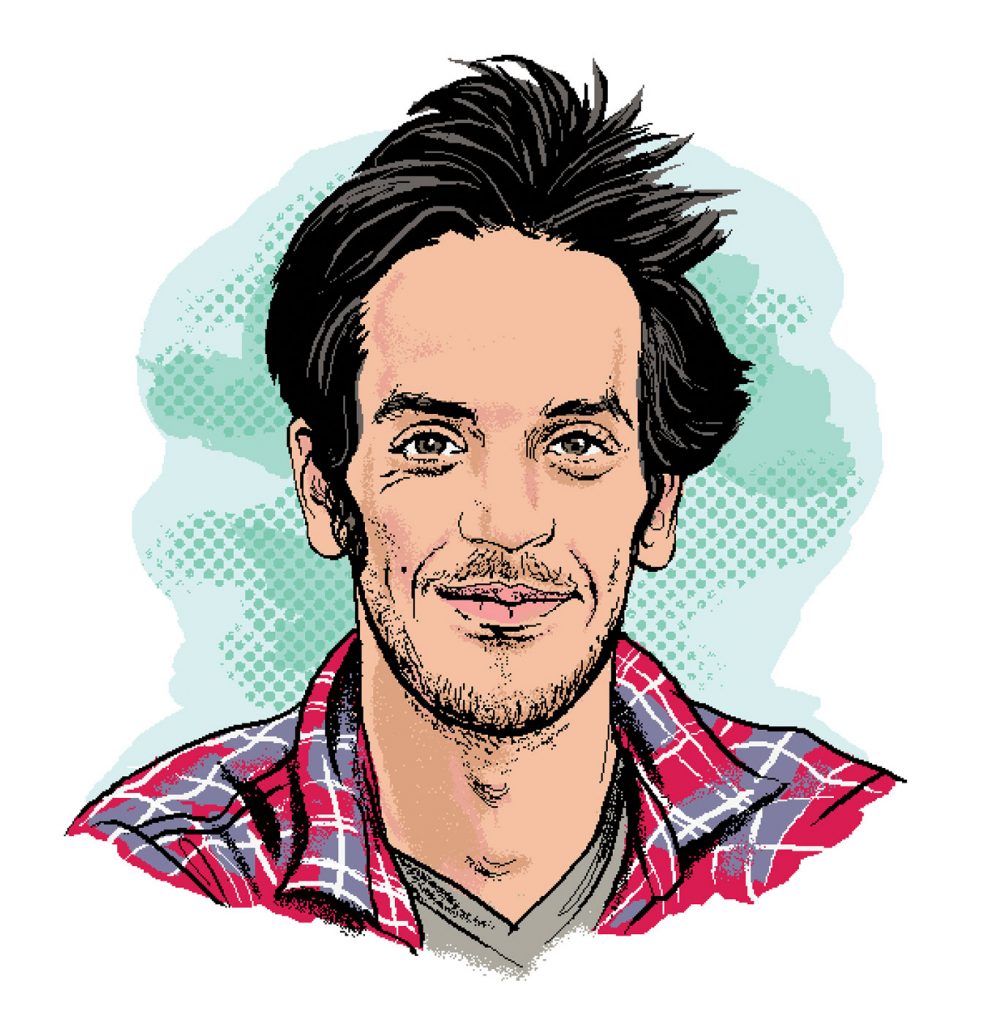For most of his 32 years Miles Bukiet has been a seeker. More recently he became a meditation teacher, developing a program that speaks to those who—from his vantage point—are the young people.
During our interview Miles and I agree to call them “young-er.” He does this out of deference to me, still a neophyte Buddhist but old enough to be his mother. One hour later, Miles has my head spinning like a carnival ride, pushing me to new ways of thinking about meditation, Buddhism, and therapy. It’s what he does.
“We don’t need more powerful people. We need more people who are clearer about love. This is why I trust Buddhism,” he said.
Bukiet’s teaching combines life experience with Buddhist meditation and interpersonal meditation—a Buddhist-inspired practice of meditating face-to-face. Interpersonal meditation, according to Miles, makes us more emotionally intelligent and helps us build stronger relationships. Bukiet received a master’s degree in Applied Positive Psychology at the University of Pennsylvania, where he studied with Robert Thurman. He honed his skills at the Monastic Academy in Lowell, Vermont, studying with Soryu Forall, whose teacher was the Rinzai Zen master Shodo Harada.
But the seeking had started long before. In his teens and twenties, Bukiet was drawn to environmental activism and yoga. He traveled to Thailand to study Thai massage and one day was invited to a fellow student’s village to attend his ordainment. Bukiet himself ended up ordaining that day in what he described as a “symbolic” ceremony. The experience led him to follow a Buddhist path, with special interest in the Thai Forest tradition.
Returning home to New York City, however, he felt something was missing.
“While certain things had shifted, there were these major developmental areas that still hadn’t really been affected,” he said. “I found myself wanting tools to bring what I had learned in meditation into my relationships.”
He spent a year in solitary retreat and then returned to study in Thailand and Myanmar, followed by a ten-month retreat; eventually he landed at the Monastic Academy. Through his studies, he said, “I started to find that bridge where I could really bring my meditation practice into my relationships.”
Once over that bridge, Miles cofounded the Dharma Gates program, catering to young adults 18 to 25. The name alludes to the innumerable ways one can find the dharma and expresses the group’s purpose—to open doors.
“We see a lot of need, a lot of emerging mental health issues,” said Bukiet. “There are undoubtedly many reasons behind it, but we do see certain existential challenges, whether climate change or goal instability or racial injustice.”
The first major retreat took place in August 2018. Since then Dharma Gates has organized eleven retreats on college campuses including Wesleyan, Syracuse, Rochester, Columbia, and Harvard. In 2020, COVID-19 forced cancellations. But then the pandemic opened a door.
In the fall of 2020, Dharma Gates held six virtual workshops with guest teachers. It also created an online advisory service, helping young seekers advance their meditation studies.
Bukiet’s own practice combines traditional Buddhist meditation and interpersonal meditation. He is also experimenting with the newer, somewhat controversial interpersonal practice called “Circling,” in which people meditate in pairs or groups and are encouraged to express their feelings. But Bukiet is careful not to equate it with Buddhism.
“I’m not claiming interpersonal meditation is some modern form of Buddhism,” he said. “I know it is helpful to people and that it relates to meditation. It’s more like a stepping stone.
Thank you for subscribing to Tricycle! As a nonprofit, we depend on readers like you to keep Buddhist teachings and practices widely available.
